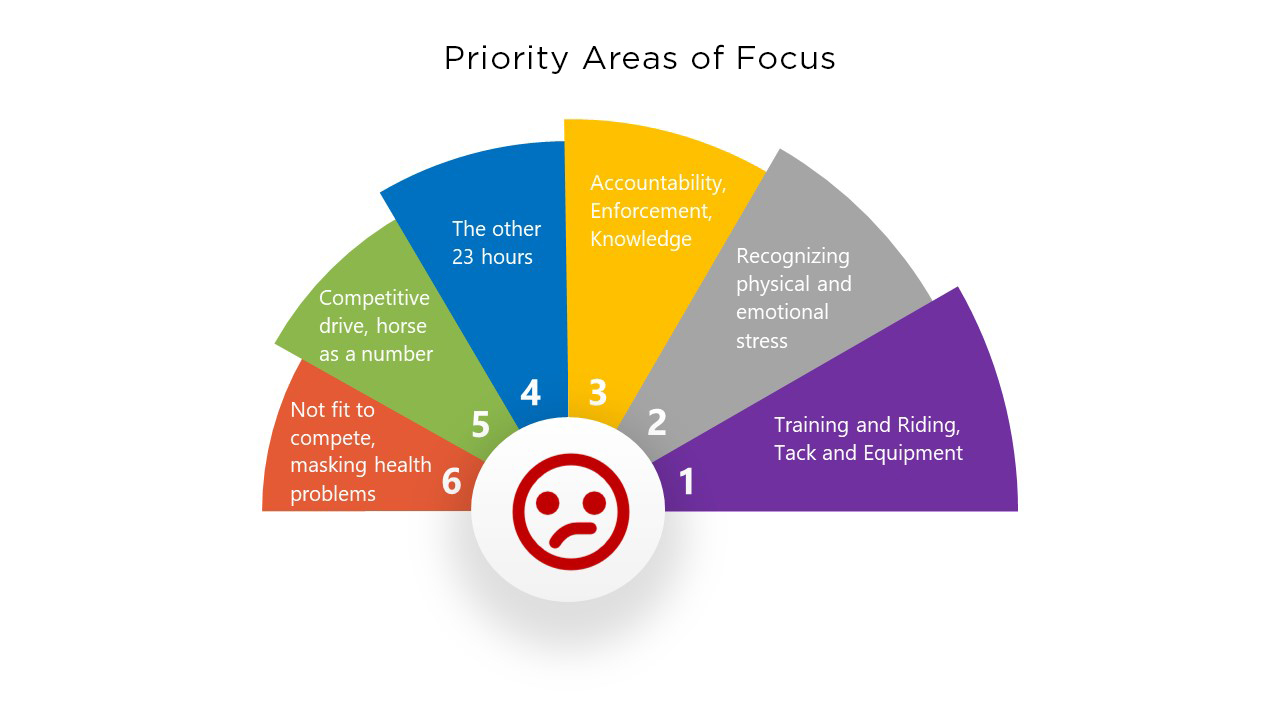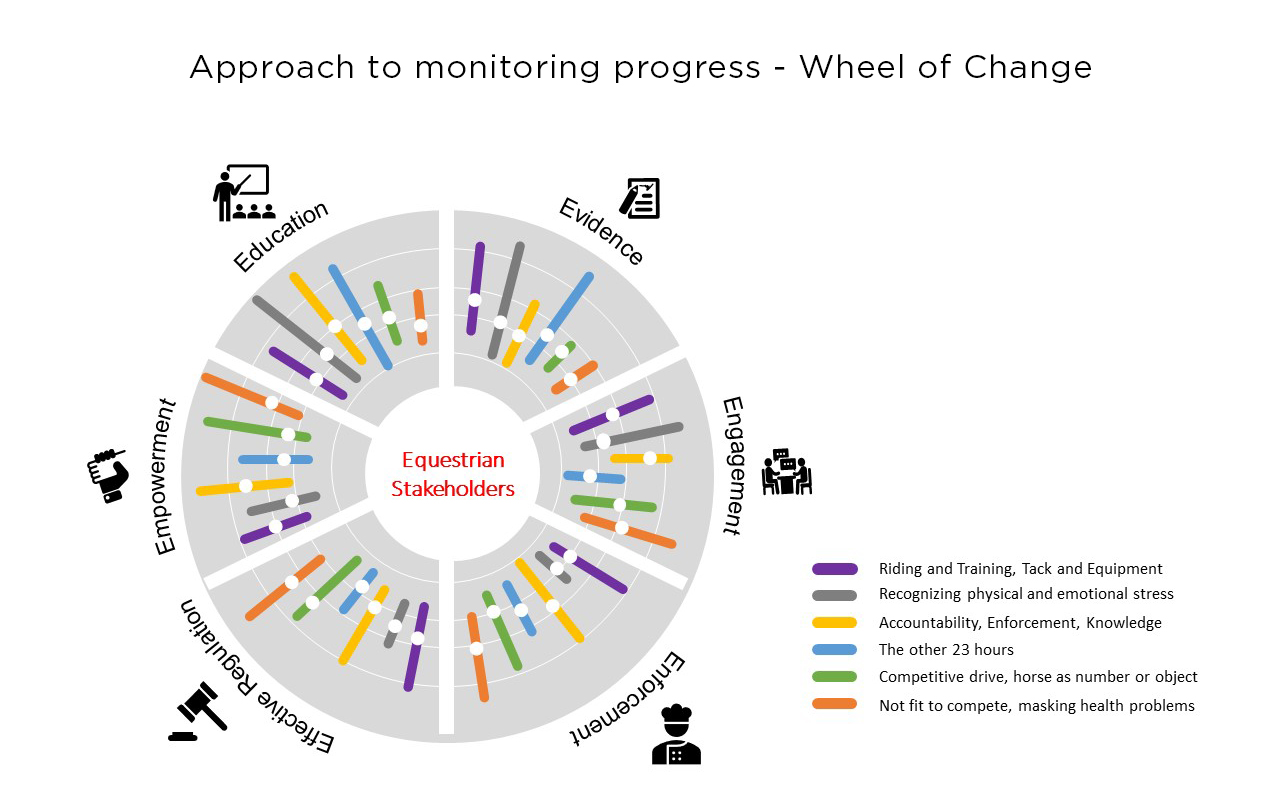A Good Life for Horses
A vision for ensuring the future involvement of horses in sport
Interim Report to the FEI Sports Horse Forum (April 2023)
Societal attitudes are changing, and prioritising equine welfare through clearly communicated positive actions, is critical to ensure the future of equestrian sport. The FEI has not just a direct, but also an indirect influence on advancing knowledge and understanding of equine welfare, specifically around the quality of a competition horse’s life from its breeding, early management, training practices, experience at competitions, through to the end of its career and life.
The FEI’s vision for sustaining equine participation in sport now and into the future needs to address ethical concerns related to equine involvement in sport as well as during a horse’s lifetime. This vision must then be effectively communicated with equine welfare at the core. It must be clear that all equestrians recognise that they have an individual and collective responsibility for ensuring that equine welfare is prioritised, especially where horses are involved in sport. Maintaining a Social Licence to Operate requires an ongoing pro-active approach from the equestrian community through commitment to a trusted equine welfare strategy. This will mean challenging the status quo and recognising that changes will inevitably be necessary to ensure equestrian sports continue to have the approval and acceptance of wider society.
The Equine Ethics and Wellbeing Commission, was created by the FEI in June 2022. The purpose of the Commission’s work is to independently consider issues of public and equestrian concern that may affect ongoing social acceptance of the involvement of horses in sport. Specifically, the Commission was tasked with providing independent advice and recommendations to the FEI for ensuring equine welfare is safeguarded through ethical, evidence- based policy and practices in relation to training, management, performance and competition practices, and to improve the sport’s social license to operate (SLO).
The Commission’s first presentation to the FEI General Assembly in Cape Town in November 2022 addressed the need for change and outlined the role of the Equine Ethics and Wellbeing Commission as ‘critical friends’. Delegates were provided with the results of two large scale surveys commissioned by the EEWB (one of public opinion and one of equestrian opinion), and an outline of the work being undertaken to develop a strategic approach for addressing the proposed six main priority areas of focus in relation to equine welfare.

In April 2023, at the FEI Sports Forum the Commission will engage with FEI stakeholders in relation to a proposed strategic approach involving a vision, objectives, suggested areas of activity and key enablers. It is proposed that achieving the ‘Good Life for Horses’ vision involves consideration by the FEI Board of the 6 early recommendations presented in 2022, as well as a further 24 Recommendations for ensuring equine welfare in sport is paramount, and addressing issues related to social licence in relation to the future of equine involvement in sport. To ensure commitment to the vision of a ‘Good Life for Horses’ we have developed the FEI Equestrian Charter, as well as a suggested approach for monitoring progress in relation to the EEWB Recommendations for use by different FEI Stakeholders (and all equestrians whether FEI affiliated or not) making use of six Enablers as below.

We hope that through our engagement with key equine community stakeholders we will improve our understanding of areas of strong support, issues of concern and any significant gaps in our work. We will continue to develop the Vision, Strategic Approach and Recommendations through ongoing engagement where this is possible to produce a final report prior to the 2023 FEI General Assembly.
We look forward to meeting you all in Lausanne.
Professor Nat Waran (Chair)
On behalf of the EEWB Commission